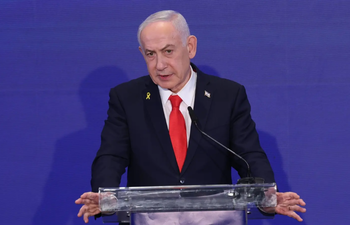Ordering is about violence. It is an inherent process within each such grand enterprise, and the liberal internationalism as a missionary project is no exception. It has often turned to violent measures to spread and uphold its ideas. Nevertheless, liberal internationalism is a far more benign order in comparison with its predecessors or the present challenges portrayed as alternatives.
The liberal order faces a multi-layered challenge today, ranging from America’s crisis of authority and external dimensions, coming as a result of unrestrained liberal expansion, to the Eurasianist pushback headed by Russia, China and multiple other states.
But as much as the crisis is real and markedly different in gravity in comparison with previous challenges, picturing the coming end to the liberal idea could be a hastily reached conclusion. Liberal internationalism is surprisingly resilient. It has been made and remade by various historical processes, and adjustment to rising external and internal challenges served as a constant. Nowadays, as the global shifts accelerate, liberalism is likely again to be responding by adapting. Adaptation might be a long and painful process filled with both successes and failures, but it nevertheless points to the idea’s flexibility.
The liberal idea proved especially resilient and progressive in times of grave challenges, such as the Nazi and Soviet communism menaces. Even now, liberalism’s elasticity and attractiveness are evidenced by a number of states of various sizes and in different regions becoming part of the order. True, some evolve into imperfect democracies (as in the case of the South Caucasus states), but large parts of those countries’ societies nevertheless embrace the liberal idea and strive for improvement in governance.
Larger failures too happen. With China and Russia, liberal attractiveness has not worked, and has even produced radically opposite results, as both states are building their institutions based on alternative ideas. Liberalism, despite its internal contradictions, is nevertheless a more benign formula than any of its alternatives. The idea is also attractive for its aspiration to and successfully carrying out of a relatively even spread of economic benefits among its participants.
Indeed, the elasticity of the liberal order was proved when Russia began that full-scale invasion of Ukraine in February 2022. The thinking in Moscow was evident: The liberal order is not only weak, but it actually experiences fundamental troubles and it is only a matter of time until it breaks down. Perhaps Putin thought he could even nudge it a bit in this direction and thus accelerate the demise of the liberal system.
The Kremlin-linked Russian analysts and politicians in Moscow have long gloated over the idea of the rise of Asia (an undeniable fact) and the simultaneous self-destruction of the West. What was unrealistic in their discourse was that the rise of Asia does not necessarily entail the automatic destruction of the West; rather, a redistribution of power is taking place where several major centers with relatively even potential are being formed.
Moscow also miscalculated on China’s approach. Beijing supported the idea of the indivisibility of European security, whereby Russia’s security concerns were legitimate. Overall, though, China remained impartial. It avoided (at least initially and in the mid-term) siding with Moscow through more concrete measures. Reasons vary, but several of them stand out most for our discussion. Russia’s campaign shattered one of China’s most cherished principles: Non-interference in another country’s domestic affairs. Beijing therefore needs to reconcile this core “Westphalian principle” with its close ties to Russia.
China also saw that Russia’s adventurism strengthened rather than weakened the collective West. With a stronger and more united attitude on Russia, a revived West may also take a more confrontational approach toward China. More crucially, this comes in the wake of China’s falling prestige in Eastern Europe, as well as NATO and the EU openly seeing China as a concrete geopolitical threat.
Generally, Beijing does not want Russia to lose because that would boost the collective West. Beijing is also concerned about Russia’s adventurism escalating into a larger global conflict, which China would be unable to avoid due to the possible security and economic consequences. In light of these factors, a long-term standoff between Russia and the West that does not devolve into a “hot war” would be most advantageous to China, giving it time to adjust to new geopolitical realities while the US concentrates on places other than the Indo-Pacific.
But perhaps Moscow’s biggest failure was the expectation of the West failing to mount a concerted effort against Russia. Divisions within the trans-Atlantic community were seen as too fundamental, while Hungary and others as less pliable to common European interests. Moreover, the EU was seen as a defunct organization, an attitude seen well before 2022 when the Kremlin openly denigrated Brussels and did not see it fit for grand geopolitical bargains.
The reality proved totally different in the first months after the Russian invasion: The liberal system showed it can sustain itself and mount definitive counter-attacks on the perpetrators. Russia was sanctioned with wide-ranging measures, which if not immediately then in the longer run are planned to cripple Russian economy.
Analysis by Emil Avdaliani














